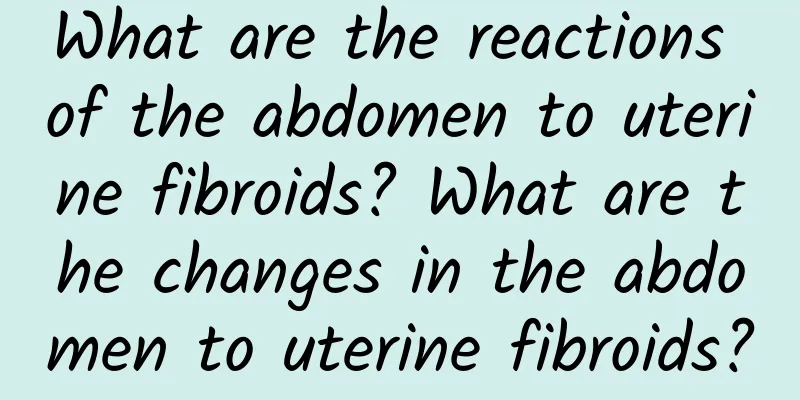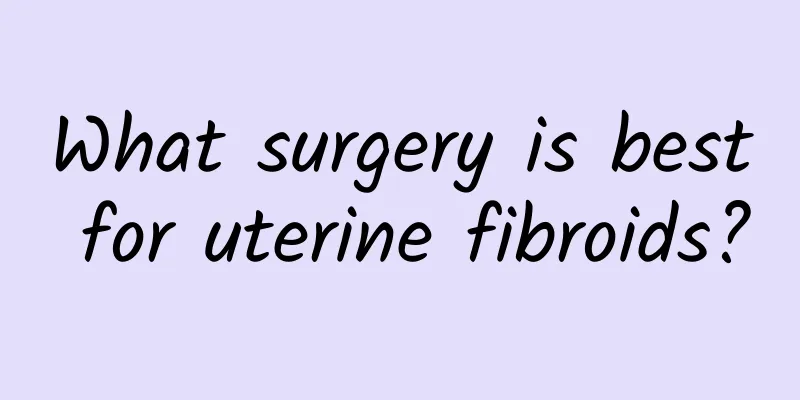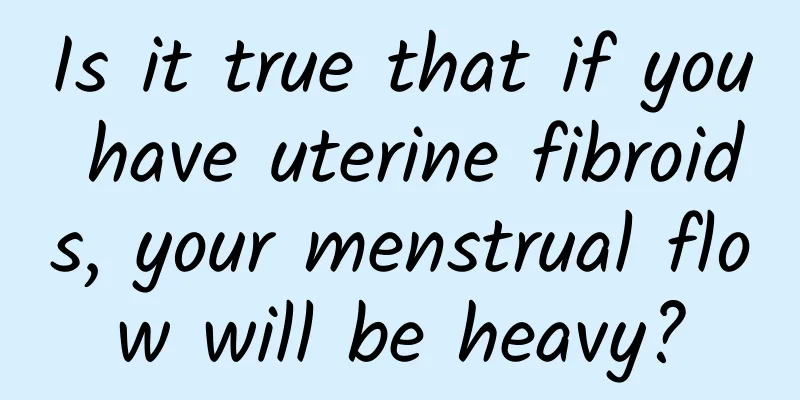What are the reactions of the abdomen to uterine fibroids? What are the changes in the abdomen to uterine fibroids?

|
Uterine fibroids are a common gynecological disease, benign tumors that occur in the myometrium of the uterus. Its appearance often makes many women feel troubled, so what will happen to the stomach when there are uterine fibroids? Let's take a detailed look below. Uterine fibroids may cause a sense of pressure in the abdomen. When the fibroid is located under the endometrium, it will press down on the bladder, causing symptoms such as frequent urination and urgency. At the same time, fibroids may also press on the rectum, causing constipation, difficulty in defecation and other problems. Uterine fibroids may also cause menstrual irregularities. Some women may experience irregular menstrual cycles and increased menstrual blood flow after suffering from uterine fibroids. Sometimes, the tumor may also hinder the normal discharge of menstrual blood, causing menstruation to stagnate in the uterus and cause dysmenorrhea. At the same time, uterine fibroids may also cause abdominal distension and pain. The enlargement of fibroids will cause the uterus to expand, which will make the abdomen feel heavy and sore. Sometimes, if the fibroids are large, there may be a noticeable lump that touches the abdomen, making the abdomen protrude. In addition to the abdominal symptoms mentioned above, uterine fibroids may also cause other effects and lead to some potential health problems. For example, fibroids may affect embryo implantation and increase the risk of early pregnancy miscarriage. At the same time, fibroids may also affect fertility because it affects the blood supply to the endometrium and reduces the success rate of fertilized egg implantation. Uterine fibroids may also increase the risk of complications such as postpartum hemorrhage and placental abruption. Although uterine fibroids can cause a variety of discomforts to women, most uterine fibroids are benign, and only a very small number will develop into malignant tumors. Therefore, if you are diagnosed with uterine fibroids, you should seek medical attention in time and choose the appropriate treatment. At present, there are many treatments for uterine fibroids, including drug therapy, surgical resection, etc. The most suitable treatment plan should be selected based on the size of the fibroids, symptoms, and the patient's age, fertility status and other factors. What are the symptoms of uterine fibroids? The main symptoms are pressure, irregular menstruation and abdominal pain, but the specific symptoms may vary depending on the location and size of the fibroids and individual differences of the patient. Therefore, when you encounter these uncomfortable symptoms, you should still seek medical attention in time for accurate diagnosis and treatment. |
>>: Can uterine fibroids be cured? What are uterine fibroids?
Recommend
Endometriosis Causes
Endometriosis is a disease that develops from end...
Learn to take good care of ectopic pregnancy in daily life
I believe everyone should be familiar with ectopi...
What are the symptoms of menopause and what to eat
Menopause usually occurs between the ages of 45 a...
What is the cause of infertility in patients with chocolate cysts?
Chocolate cysts must be treated promptly, otherwi...
Experts remind how to prevent adnexitis
How to prevent adnexitis is a question many women...
Does Bartholinitis recur frequently?
For patients with Bartholinitis, first of all, du...
Experts explain in detail the main symptoms of cervical hypertrophy
Cervical hypertrophy is a gynecological disease w...
How to check menopause?
Menopause is a problem that every female friend h...
What are the precautions for endometriosis?
What are the precautions for endometriosis? Preve...
What are the benefits of regular B-ultrasound examinations for irregular menstruation?
Generally, when checking for irregular menstruati...
New ways to eat moon-viewing dishes: adding fruits and vegetables to dishes to prevent obesity
As the trend of health preservation and energy co...
Can anger cause miscarriage? Let's take a look
Pregnant women are prone to mood swings during pr...
How to treat abnormal leucorrhea best and fastest
There is no best and fastest way to treat abnorma...
What is the reason for menstruation after amenorrhea?
What happens when menstruation comes back after a...
What causes irregular menstruation in women?
Do you know what causes irregular menstruation? I...









